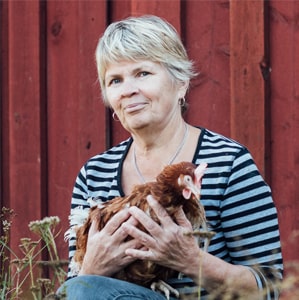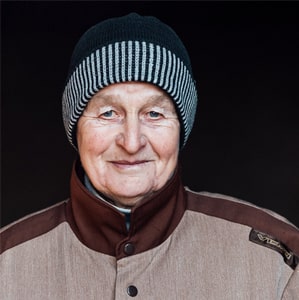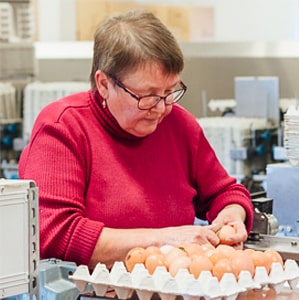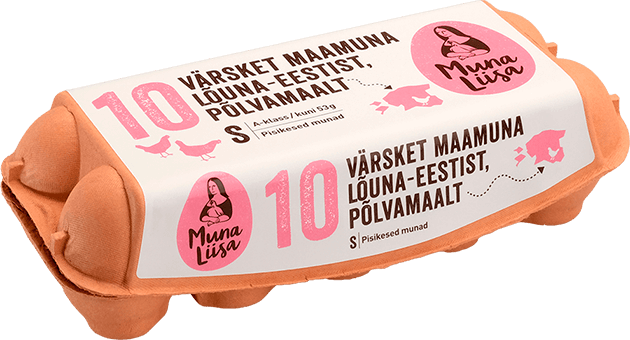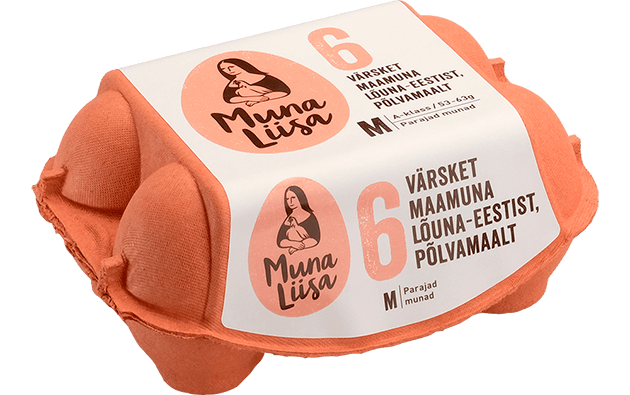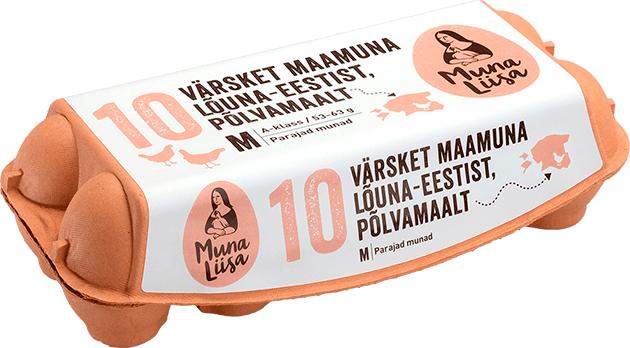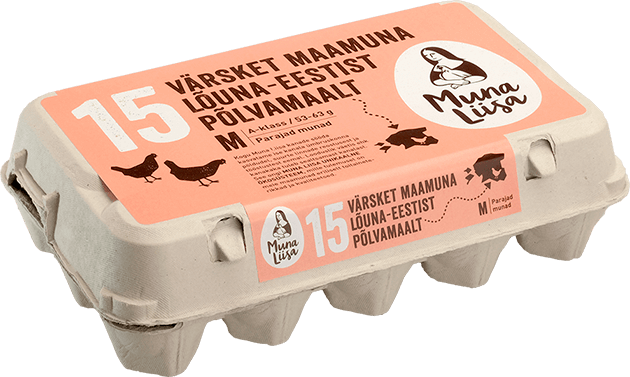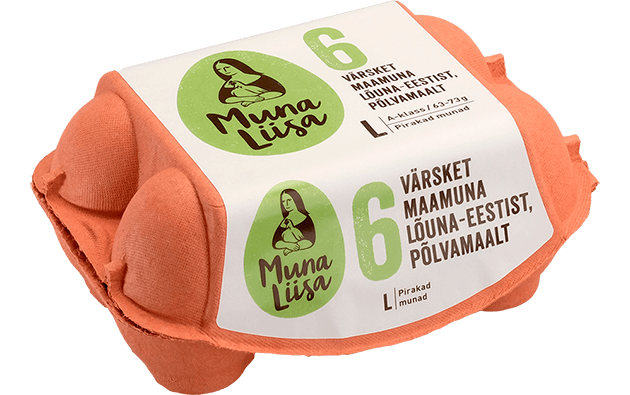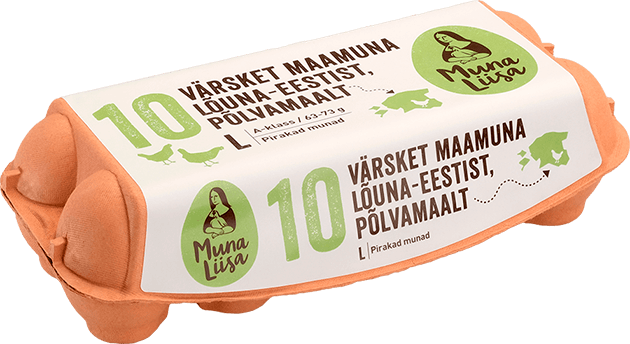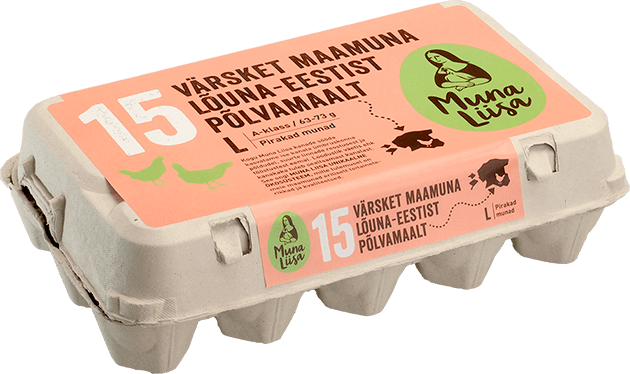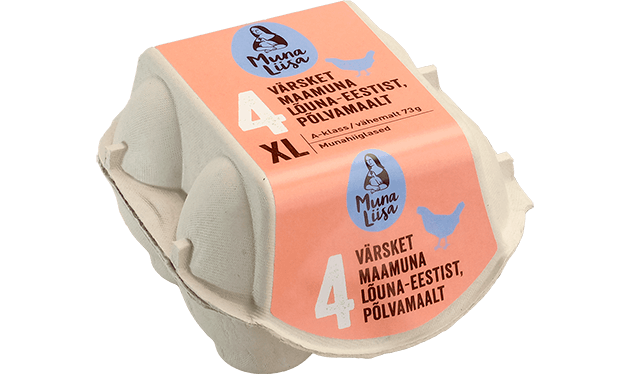It takes ca. 6 kg of complete feed to raise a chicken. To lay an egg, a chicken needs 120 grams of feed and about 300 ml of water. This can vary between different breeds, but this is how we do it. The process of creating eggs also depends on the way the chickens are kept and about a hundred more factors. The feed stays inside a good egg-laying chicken’s gastrointestinal tract for 2–3 hours. This time is longer for the hatching chickens: up to 11 hours. A chicken has two stomachs: the gizzard and glandular stomach. In the gizzard, there are little stones that help to grind feed, and the glandular stomach is only to soak the food mass with different digestive juices. From there, the food moves into the intestinal tract, where nutrients can be absorbed into the blood.
Chicken needs feed that is either ground or finely crushed. The chicken’s gizzard is able to grind the grain, but not without little stones. This means the stones are vital for a chicken. They help to make the food digestible. The gizzard is covered with hornlike plates that protect it from the injuries of sharp stones. In gizzard, the food is crushed and taken to the intestine where nutrients are absorbed. Things are different with water. Chicken needs water, but does not pee. (You know the saying: “Children speak only when the chickens pee”.) The thing is, chickens have no urinary bladder. They have two kidneys and two ureters that flow into the end of the intestine: cloaca. Urine as such is only a liquid mass that exits the cloaca with feces.
Chicken manure is a good fertilizer. It contains quite a lot of amino acids which have less methionine – amino acid that consists of sulfur. However, according to the research work so far, plants can almost completely absorb the phosphor in the manure. You can always smell it when spreading chicken manure. The best is to compost the chicken manure first and then spread it on the field. There is a plan to start granulating chicken manure into a valuable complex fertilizer in the future.
In order to get a good crop and grain that chickens find enjoyable, you must know the field’s psychology: what is the farmland’s value (site class), pH and what has grown in the field historically. Consistency is the key: what kind of crop or sowing needs to follow what kind of yield. For that, soil tests are very important and need to be taken after every five years. Then, the fields also need manure and other fertilizers according to the test results. Because the soil is very acidic in South-Estonia, calcimining is also very important. While it corrects the soil’s pH, it also makes farming more expensive. Regardless of that, we only use crop grown by local farmers.
In our conditions, a chicken mostly eats wheat, less barley and oats – all of which come from our local field. The local crop makes ca 75% of the feed. In addition, we cannot live without soybean meal, linseed cake, sunflower seed cake, rapeseed oil and minerals. This is the only way to grow a healthy and strong chicken who lays lots of eggs and whose food consists all the necessary nutrients, vitamins and minerals.



